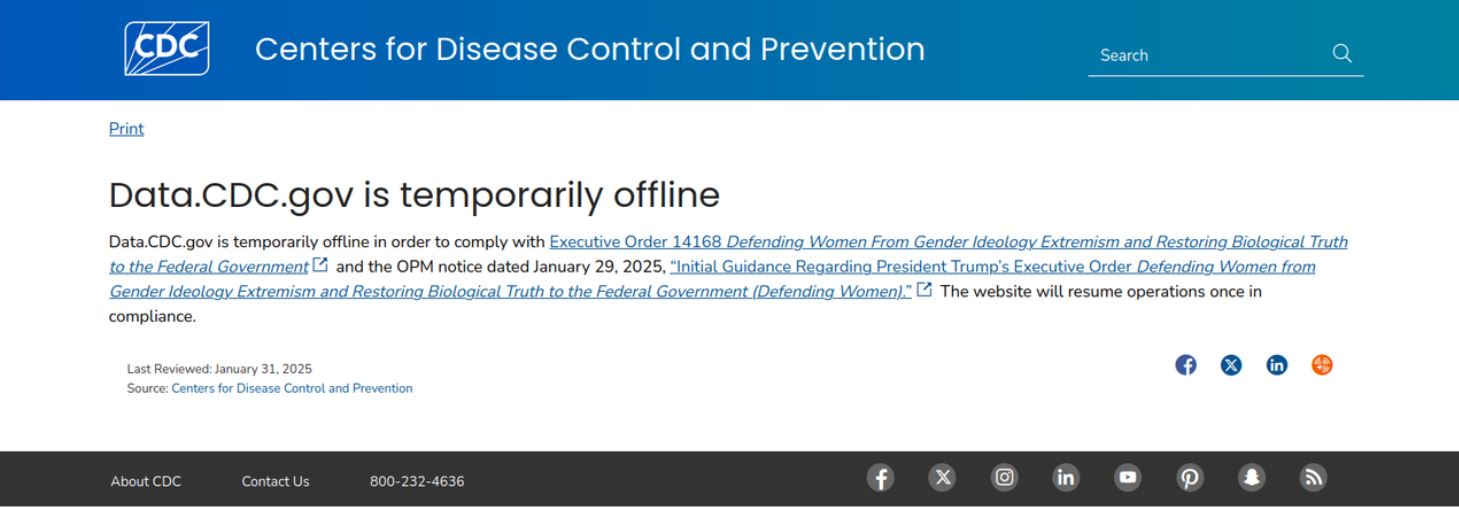All DataHaven Programs
The federal government’s anti-inclusion data purges harm us all
by DataHaven Staff
(Screenshot from January 31, 2025, 9:40pm)
The recent move by the federal government to remove thousands of publicly-funded web pages and datasets is a threat not just to our work at DataHaven, but to the many non-profits, health care researchers, and resident advocates collectively working toward healthier, more equitable communities. We rely on having accessible, trustworthy data from these federal agencies, but the impact goes far beyond that. The datasets currently under fire inform many aspects of our lives, from understanding health trends to funding schools and transportation to directing pandemic relief.
There’s little being done to hide this being an ideological purge, complete with lists of banned words. Recently, when we tried to update important public health indicators from the CDC, such as rates of asthma and diabetes, we were instead met with a notice that the data portal was down pending compliance with an executive order to protect women from “gender ideology”. This dataset has no mention of gender identity, but it does, ironically, have rates of women’s health screenings, as well as economic measures like food insecurity that tend to impact women and children more. Other data deemed too inclusive include the tables from a major youth survey, a key tool for school districts to track trends in youth substance use, bullying, and suicidality, as well as the CDC’s social vulnerability index, used by FEMA and local agencies to identify areas with more seniors or car-less households for disaster planning and evacuation.
Very few datasets contain any information about gender identity. Very few Americans identify as transgender (we estimate about 1 percent of Connecticut adults do). From the data we do have, we see trans adults in Connecticut and elsewhere generally being at greater risk of depression, anxiety, and financial hardship.
No one is made safer or healthier by being “protected” from those facts. It’s not really about the data: this is a move to further politicize basic health information, and to explicitly scapegoat, criminalize, and inflict harm on our trans community members, with dangerous precedent. When we allow basic concepts of equity to be outlawed and women’s health to be used to further marginalize LGBTQ people, we all lose.
We believe in data as a powerful tool—for knowledge, for advocacy, and for accountability. We are seeing first-hand what can happen when public information—or its censorship—is weaponized, and it stands to harm us all. We don’t know how this will play out over the coming months and years, but we know that we and our allies are clever, determined, and prepared with backups.

